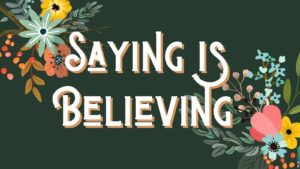Spoiler: everyone has it
Anxiety is such a bad word. Just saying it comes with a list of symptoms and stereotypes that pop into the mind.
Everyone in my family is anxious, they all walk around worrying about imagined feared scenarios. But I didn’t realize I had anxiety until I was in grad school at twenty-seven! Because my anxiety didn’t look like the rest of my family’s I didn’t know I had it.
What I have found is that no one slows down and defines anxiety, they just throw it around and say “I’m anxious,” “I have anxiety,” or “I’m so stressed!”
But what does that mean? And how does it look in different people?
Spoiler: we’re all walking around with anxiety

Most people are filled with shame, embarrassment, and guilt for worrying.
We all try and hide worry in different ways. Different personality types may hide their anxiety by staying super busy, making jokes, isolating, talking too much or withdrawing, drinking, pretending everything’s okay or by lashing out.
But here’s the thing, anxiety is a physiological warning bell. So all the ways we hide our anxiety is only delaying when the alarms will get louder.
I’m here to normalize anxiety
We are all hard-wired with this alarm bell.
There is no escaping it and no way to shut down the system. So here we are, accept it, make it your friend, and let’s stop working against it!
Do you ever become super stressed about being late for work in the traffic jam? Yep, me too.
MTA stopped you for 25 minutes and you’re feeling anxious about getting off the train? Yep, been there! Living in NYC created all new fears I wasn’t prepared for—9/11 anyone?
How about parenthood? Ugh! A whole slew of new imagined ways children can die. Seriously excruciating, and it’s no wonder we want to avoid these alarms!
But they’re here so that you can plan a bit better and get up earlier, look around the house and decide to baby-proof, or maybe move out of NYC 😉

The physiological response is to signal danger ahead.
As cavemxn, if we saw a bear and our bodies got kicked into high gear to get us the fuck out of there!!! We didn’t see any foods to gather, anxiety would drive us to walk long distances for fear of no food.
Now, this very same system is used a bit differently.
Anxiety is our motivator. It springs us into action:
- No food in the house? I’ll run to the store after work.
- Forgot to respond to that email? Better do it now before I forget.
- Are the kids safe? Maybe I should text them.
These are all small instances of an uptick in anxiety, it shoots awareness in and kicks action out.
When anxiety becomes harmful
spoiler: we’ve all been there.
Anxiety can become destructive when it impacts areas of our life.
Anxiety can paralyze us, promotes avoidance, and brings an arsenal of self-shaming criticisms into our heads.

Further promoting avoidance and paralysis! This can be:
Socially; “last time I saw them I forgot his name, I can’t go out with them again!”
Professionally; “I can’t speak up in the meeting, I have nothing new to contribute and they’ll think my idea is stupid.”
Personally; “I can’t tell my partner I messed up, they’ll be so mad at me!”
Or in general, pretending like you got it all handled, everything’s good, and avoiding vulnerability and connection.
Biologically, we need rest after stress
Anxiety becomes destructive when the alarm fires over and over again.
If we saw a bear back in the day, we’d book it, find a safe place, and then our bodies would be able to recover for the remainder of the day (think cheetah sprints). But today, we don’t take care of ourselves in the same way.
So if you can imagine a typical day:
You start the drive to work and your day anxiety shoots up at the sight of brake lights. You’re late to work. 😒
Work throws stress your way. You’ve moved as quickly as you could to meet deadline demands but you leave work a little late. 😰
You rush to get food from the store, cook dinner, check on the kids’ homework, feed them, get them to brush their teeth, read books, and relax them into bedtime. 😤 😪 😴
You finally get a breath and think back on the day when realize you haven’t had more than a few bites of food and you’re too tired to try so cold, leftover, dino nuggets are what you’re having. 😓
Sound familiar? Me too. 😅
Thanks, quarantine (not Covid) for the much-needed slowdown!
Physiologically throughout the day cortisol (the stress hormone) was released into the bloodstream all day.
This can be bad because it causes harm in the present; the reason they weren’t hungry all day. And in the long term; with a high risk of stroke, high blood pressure, heart attacks, and premature death.
…now that’s something to stress over! 😰
And Reminder: our bodies need a full day to rest after one stress-inducing event!
We often are confused about why we’re so tired—but the answer is in the ways we take care of ourselves and respond to our anxiety alarm bells.
How to prevent anxiety from becoming harmful
Though we all have to deal with anxiety, there isn’t a one answer fits all solution.
So what do we do? It depends. The first step is to understand how anxiety shows up for you and how you react to it.
Are you an avoider, cleaner, over talker, drinker/vaper, or over preparer?
Me, I over-prepare. So I set goals and make to-do lists to manage most of my anxiety (you bet finishing this blog was on one! ✔ ).
So once you’ve managed to learn about your flavor of anxiety and how you currently manage it, you can then examine if it’s helping or hurting.
hint: therapy will help with that 😉
If you’d like more information on ways to help with anxiety ASAP, read my blog post here.



